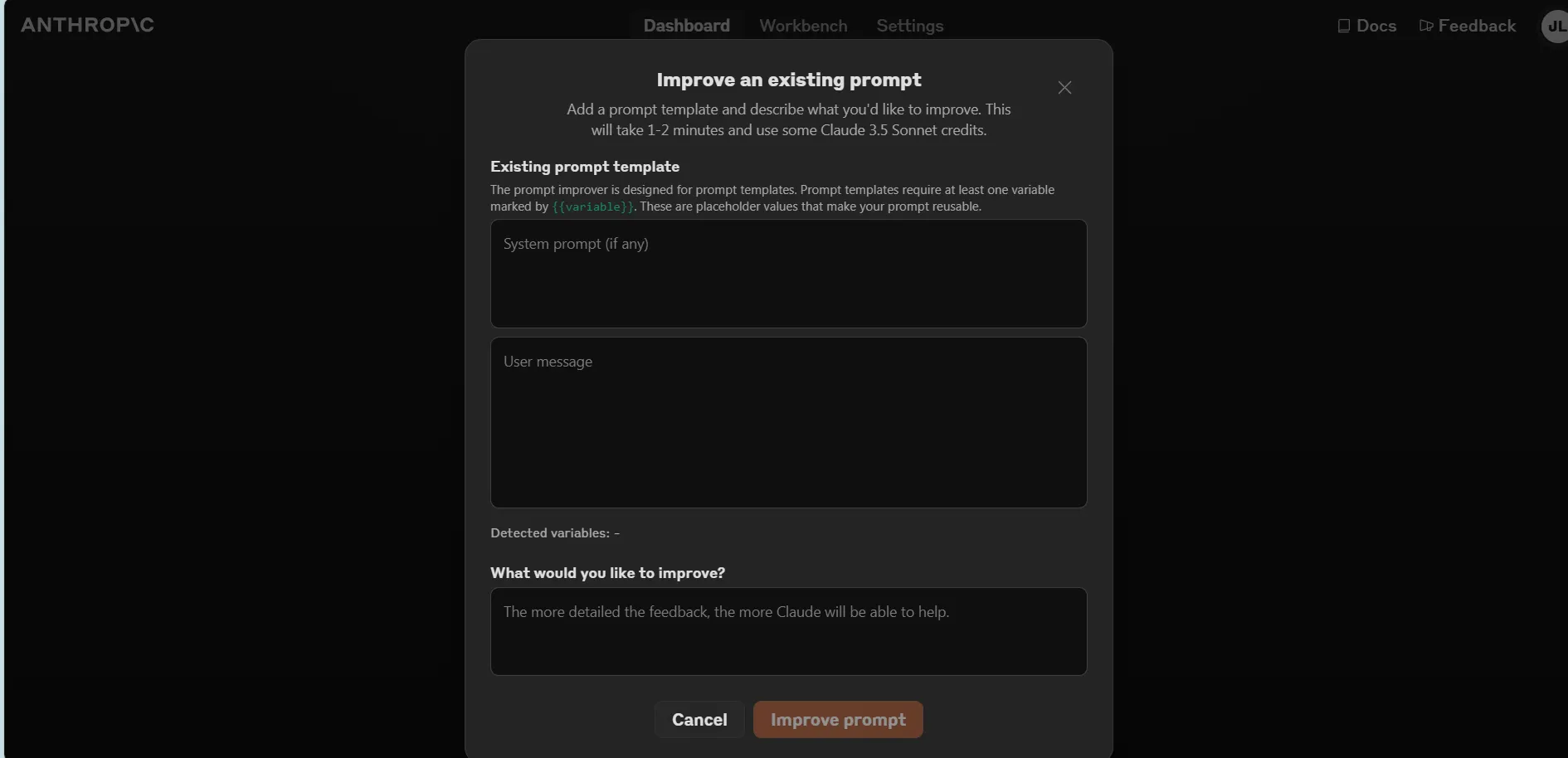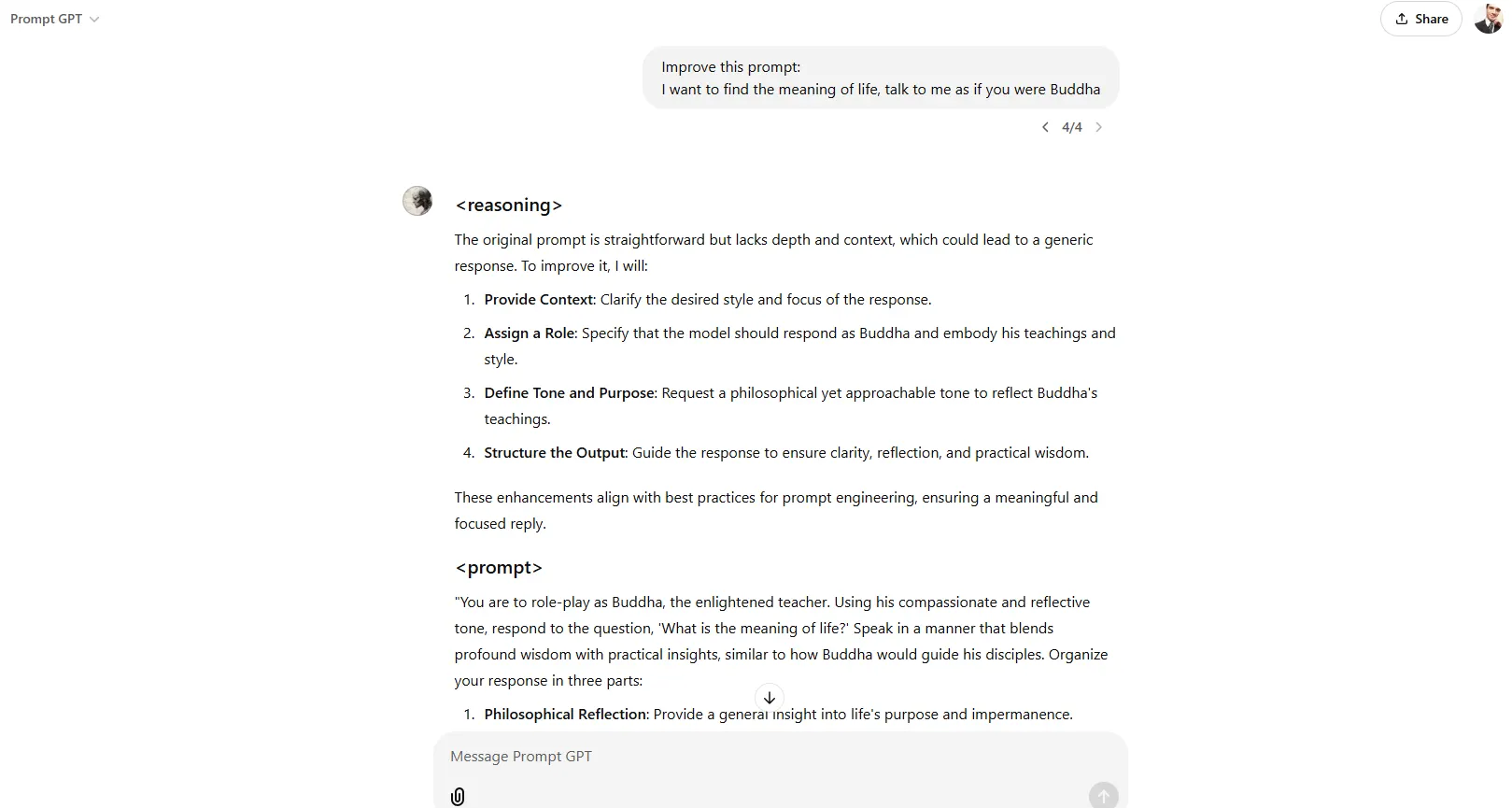By now, you probably know that the advent of consumer-facing AI tools like ChatGPT, Anthropic's Claude, and Google's Gemini changes everything. If so, you might also know that the results you get from these tools are only as good as the “prompts” (or queries) you enter.
Effective prompt engineering is way more complicated than doing a Google search. Knowing the tricks of prompt design is so important (and potentially complex) that some people even make a living as prompt engineers.
That’s why the big platforms have been using their AI to help humans write better prompts.
Earlier this week, Anthropic unveiled a suite of prompt engineering tools in its developer console, to simplify AI application development and challenge OpenAI's dominance in the enterprise market. The star of the show, a “prompt improver,” automates best practices for prompt engineering and increases model accuracy by 30% in testing, Anthropic says.

Anthropic’s optimizer appears to be a direct response to a similar solution released by OpenAI last month.
As Decrypt reported, the developers of ChatGPT revealed that their tool relies on a “meta-prompt” designed to analyze an input, and adapt it according to OpenAI’s formats and practices to enhance prompt clarity.
Meet Decrypt's Promptly
Anthropics's prompt improver, just like OpenAI's, only works on their platforms. Likewise, their developer consoles aren't exactly intuitive. So we decided to build our own tool that's easy enough for general users to understand and works across all platforms.
We chose ChatGPT because it is the most popular UI, and anyone can get to our prompt improver for free. We trained our chatbot on a comprehensive dataset combining OpenAI's official guidelines with community-sourced best practices and tips. This hybrid approach enables the tool to provide accessible, justified recommendations while maintaining technical accuracy. It may also benefit from some ideas that OpenAI decided not to implement.
We asked GPT what to call our tool, and it suggested “Promptly.” Ta-da!
The way it works is simple: Visit the link and simply tell our GPT "improve this prompt," followed by the prompt you want to beef up. The bot will analyze it, explain its reasoning, and suggest specific improvements through an iterative dialogue. For instance:

Our internal tests revealed particularly strong performance in creative writing and reasoning tasks, where our tool subjectively provided better results than Anthropic's solution, with more detailed, accurate and richer responses. Coding and analysis capabilities didn’t really show a major difference, but overall, the free tool does succeed at helping users refine prompts through natural interaction.
Notable features include the ability to target specific improvements like clarity or detail, and the tool's capacity to recognize fully optimized prompts while still offering constructive suggestions for potential enhancements. Also, you can talk to the bot in natural language and improve the prompt through several iterations, which is not quite as intuitive in the official tools.
But there's also an option for those who don’t want to rely on AI to improve their AI prompts. There are a lot of courses, guides, and tutorials that can help you excel at prompt crafting.
Don’t waste your money on what is already available for free. There are great courses on YouTube that will provide you with all the information you need and come from reputable sources, including channels like Zero to Mastery—which features a 5-hour course—Google videos and courses, Free Code Camp, Microsoft and others.
Edited by Andrew Hayward





